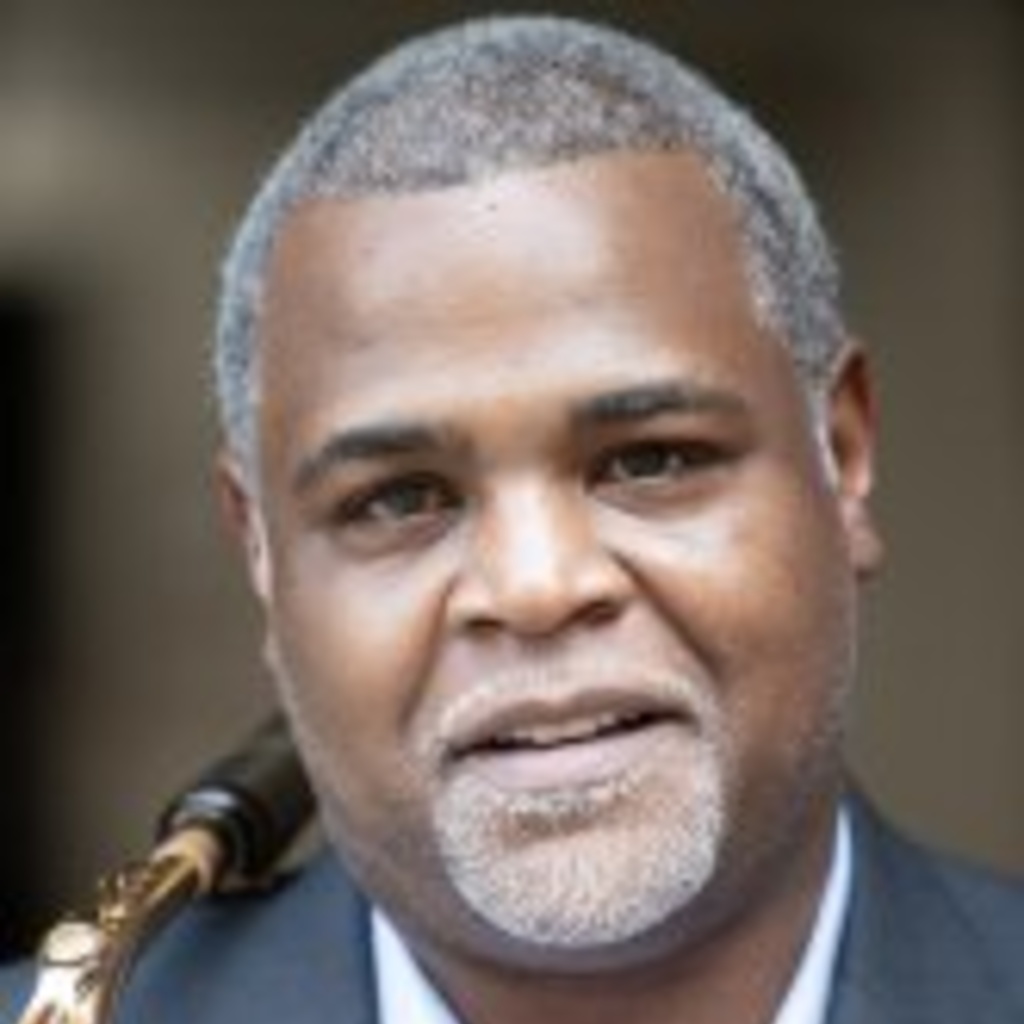Main navigation
Earn your BM in Jazz Studies
The Jazz Studies area includes numerous large and small ensembles and a comprehensive slate of other courses that are open to all qualified students at the University of Iowa. Specific courses are designed, respectively, to meet requirements in general education, music education, music therapy, and all tracks of the BM degree. Currently, more than 300 students are enrolled in jazz coursework each year.
Guitar instruction is offered only at the lower level for undergraduates and is open by audition only. Students may not enroll in the Bachelor of Music program with guitar as their major instrument.
Already applied and admitted to the university? Prepare to audition with the School of Music.
Course Offerings
Required course placement
Performing opportunities and how to audition
The Jazz Studies area at the University of Iowa is devoted to providing performance opportunities from the full spectrum of jazz styles and history. There are a minimum of seven ensembles offered each semester ranging in repertoire, style and skill/ability.
Placement into our groups is handled by audition, which takes place during the first full week of classes each semester.
Performing opportunities
How to audition
Audition materials and time slot sign-up sheets can be found in the jazz studies area of the Voxman Building (4th floor, east hallway, in the very southeast corner of the building) the Monday (one week) before classes begin.
Audition material will consist of the following:
- Prepared excerpt
- This will be included in the audition packet you pick up when you choose a time slot, which will be available for students the Friday before classes begin.
- Short sight reading excerpt
- Improvisation demonstration
- If you would like to be considered for placement in a jazz combo or a solo chair in one of our jazz ensembles, the improvisation component of the audition is mandatory.
- Those wishing to be considered for non-improvising section chairs in a big band may forgo the improvisation portion of the audition. The list of eligible songs for each semester’s auditions will be included in your audition packet.
Please contact Dr. Damani Phillips at 319-384-2835, or e-mail damani-phillips@uiowa.edu for more information or to schedule an audition.
Johnson County Landmark
Johnson County Landmark (JCL) is a 16-piece jazz orchestra devoted to the performance of jazz ensemble repertoire, both traditional and contemporary. With the goal of acclimating its members to the gamut of stylistic demands placed on a modern-day jazz instrumentalist, JCL’s performance repertoire covers the breadth of expectations commonly required in large ensemble performance situations. Its programs have included the music of Duke Ellington, Billy Strayhorn, Tadd Dameron, Thad Jones, and Charles Mingus, as well as current stars Maria Schneider and John Hollenbeck.
Members of Johnson County Landmark are determined by auditions, which include a prepared piece, improvisation, and sight-reading. The material performed by JCL occasionally requires members to double on secondary instruments. Johnson County Landmark is the jazz program’s flagship large ensemble, and serves an ambassadorial role in outreach to schools, colleges, music venues, and festivals around the country.
Jazz Repertory Ensemble
Jazz Repertory Ensemble (JRE) is a big band with a primary focus of performing works that are considered foundational in big band repertoire. Focusing primarily on composers and compositions that are central to the big band tradition, JRE focuses on ensuring that our musicians have a solid foundation in the historical evolution of big band music. Pulling from the work of composers such as Count Basie, Mary Lou Williams, Neal Hefti, Quincy Jones and Buddy Rich, JRE functions as a feeder ensemble to our flagship jazz ensemble. Members of JRE are determined by audition in the fall of each academic year.
Black Popular Music Ensemble (BPM)
A partnership between the School of Music and the African American Studies department in the College of Liberal Arts and Sciences, the Black Popular Music Ensemble (BPM) provides a means of detailed study and performance of popular music styles emanating from African American culture. With a focus on Black music from 1950 onwards, this ensemble will include styles commonly overlooked by the academy, including R&B, Gospel, Soul, Hip Hop, Neo Soul, and Funk. BPM participation is open to all UI student singers, emcees and instrumentalists, regardless of area of major study. Ensemble placement is determined by auditions, which will take place during the first week of each semester.
Small Jazz Ensembles
Small Jazz Ensembles are open to advanced students with the skills to improvise and produce original arrangements. Under the mentorship of our jazz faculty, these groups each perform two campus concerts every semester, as well as club dates and casuals. Enrollment is by audition.
Create your academic path
You'll find degree overviews, requirements, course lists, academic plans, and more to help you plan your education and explore your possibilities.
Current course list
The MyUI Schedule displays registered courses for a particular session and is available to enrolled students. The list view includes course instructors, time and location, and features to drop courses or change sections.
Jazz studies faculty
Michael D'Angelo

William Menefield

Damani Phillips

Curtis Taylor
Practice and perform
Need to book a music room, request an accompanist, check out audition information, rent a locker, or use a recording studio? Visit the Music Callboard for all scheduling and policy information.